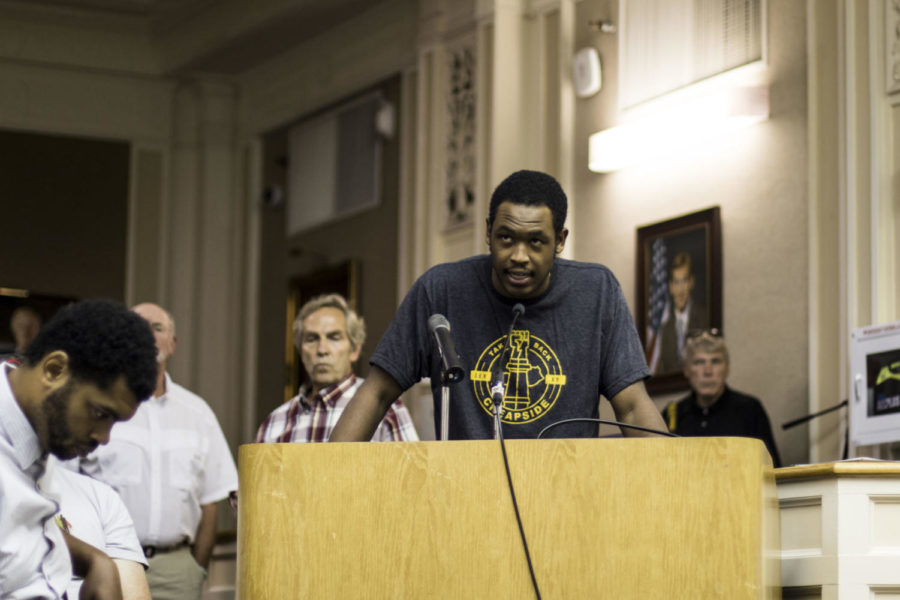Racism, injustice and history: Activists push students to embrace change
Founder of ‘Take Back Cheapside’ DeBraun Thomas speaks during the council meeting held to vote on the removal of two Confederate statues in downtown Lexington. The two statues include one of John Hunt Morgan, a Confederate general, and another, John C. Breckinridge, the last Confederate Secretary of War. The final, unanimous vote was taken on Thursday, Aug. 17, 2017 at the Lexington-Fayette Urban County Government Center in Lexington, Kentucky. Photo by Arden Barnes | Staff
April 4, 2018
Facing change is one of life’s greatest challenges. UK is giving students a chance to tackle this challenge with the first-ever Facing Change Week.
Facing Change Week, April 2-6, is a week-long program that allows students and community members to learn about diversity, social justice and injustice.
As part of facing change week, UK invited Amberly Carter, author and cousin of Emmett Till, and DeBraun Thomas, leader of the Take Back Cheapside project and musician, to speak to the campus community.
The two discussed how racism and injustice that developed in our country’s past is still having an impact on society today. The pair both believe that talking about and remembering the past will influence the future.
“We have the ability to learn this history and learn from it,” Thomas said during the panel.
The members of the panel were not afraid to give personal stories about how injustice has impacted their lives and how it made them into activists.The panelists agreed that starting a conversation was the most important part of bringing change to a community.
“Everybody has their own experiences,” Thomas said. “And once you realize that our experiences are what make us who we are, there is a much better connectivity and it is easier to relate to people.”
The panel also focused on the role of police departments in the community. Both panelists had personal stories about their involvement with the police and believed that a change needs to be made.
“Across the country we have a systematic problem,” Carter said.
A panel like this one brings UK students and the Lexington community together and can create a conversation of change.
“I think it is important to continue the dialogues that are happening in the classroom on a community level,” Carter said. “So I noticed that there were a lot of community members that came, and it shows students in the real world that people want to have a conversation.”
Giving students the opportunity to learn about diversity, social justice and injustice can allow them to develop their own opinions. This can lead to a culture of activism and change in the community, students said.
“I find that panels and lectures help clarify my own thoughts about issues. So I really enjoy attending,” said UK student Angeliea Miller.
































































































































































